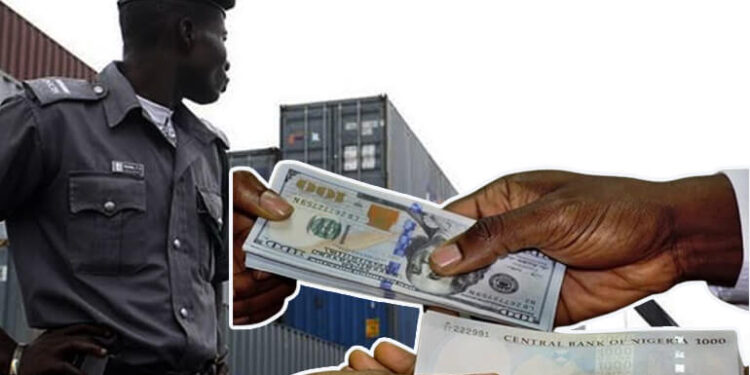The exchange rate for customs duties collection in Nigeria has seen a minor decrease, dropping from N1,516/$ to N1,512/$ between July 5th and July 7th, 2024. This N4 decline in the exchange rate reflects the ongoing fluctuations in the value of the naira against the US dollar.
This change follows a drop in the official market rate from N1,520/$ to N1,509/$ between July 4th and 5th, highlighting the naira’s continued weakness in both the official and parallel markets. Despite experiencing some stability in June, the foreign exchange market remains volatile.
In June, the customs exchange rate remained relatively stable, fluctuating between N1,473 and N1,510, and closing at N1,505.30/$1. This represented a 1.3% depreciation for the month. The stability observed during this period suggests that the Central Bank of Nigeria’s (CBN) reforms and policy measures may be beginning to stabilize the foreign exchange market.
CBN’s Monetary Policy Adjustments
During the first half of 2024, the CBN raised the Monetary Policy Rate (MPR) by a cumulative 750 basis points to combat rising inflation and attract foreign portfolio investors. This aggressive monetary tightening led to a significant increase in foreign portfolio investment, which rose to $2.07 billion in the first quarter, the highest quarterly amount since Q1 2020. Additionally, total capital imports for the quarter increased to $3.37 billion, also the highest since Q1 2020.
Upcoming MPC Meeting
The CBN’s next Monetary Policy Committee (MPC) meeting is scheduled for later this month, where decisions will be made regarding whether to maintain or further increase interest rates. The high-interest rate environment has drawn criticism from various stakeholders in the business community, who argue that it hinders growth and job creation.
Impact on Businesses
Aliko Dangote, Africa’s richest man and a prominent figure in the Nigerian business community, has been vocal about the negative impact of high-interest rates on economic growth and job creation. Speaking at the Manufacturers Association of Nigeria (MAN), Dangote stated, “At 30%, there is no way anybody can create jobs because we are stifling growth. So interest rate can remain at 30% but no growth will happen unless that interest rate comes down.”
Dangote’s concerns are supported by recent financial reports showing a significant increase in the finance costs of major consumer goods companies in Nigeria. A review by Nairametrics revealed that the finance cost of major consumer goods companies listed on the Nigerian Exchange (NGX) increased by 1,345% in the first quarter of 2024 compared to the same period in 2023. Notably, Nestle Plc’s borrowing costs soared from N3.74 billion in Q1 2023 to N217.01 billion in Q1 2024.
As the CBN continues to navigate the delicate balance between curbing inflation and fostering economic growth, businesses and investors alike will be closely monitoring the outcomes of the upcoming MPC meeting and its implications for the broader economy.









